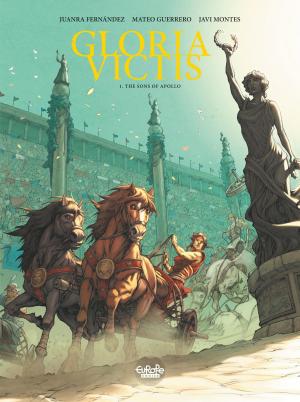| Author: | John McKiernan | ISBN: | 9781476430041 |
| Publisher: | John McKiernan | Publication: | April 28, 2012 |
| Imprint: | Smashwords Edition | Language: | English |
| Author: | John McKiernan |
| ISBN: | 9781476430041 |
| Publisher: | John McKiernan |
| Publication: | April 28, 2012 |
| Imprint: | Smashwords Edition |
| Language: | English |
The Tale of Troy was not Homer's alone. Even before he sang of the Wrath of Achilles and the Return of Odysseus, many other poets had recounted the acts of gods and men at Troy. Over many years the tale was reworked and grew and changed, until the truth of the real war was almost lost. But through those long years the voice of one man was silent. And that man knew the tale complete and unadorned, for he was there.
In his palace on Ithaka, many years after the fall of Troy, Odysseus is old and near death. But he has one last task to perform: to tell his story of the Trojan War. In order to counter the romances and distortions of the harpers, Odysseus wants his story to be written down, that it may be remembered as it truly was. He chooses a scribe of his household, and over the weeks the young slave listens, a friendship grows between Lord and servant and the great tale unfolds.
The tale Odysseus tells is familiar, yet strange. In his telling the gods do not walk among heroes, nor do they fight alongside them.
But he does explain many things which the poets did not:
Why it was so important to Agamemnon that there be a war against Troy.
The true cause of the ill feeling between Achilles and Agamemnon.
How Troy was finally taken and what the Horse really was.
Why the Greeks' Grand Alliance was broken at the moment of their triumph over Troy.
Why Agamemnon died by his wife's hand, and why, in her eyes, it was not murder.
And perhaps most important of all.
Who the monsters that Odysseus met really were.
The Tale of Troy was not Homer's alone. Even before he sang of the Wrath of Achilles and the Return of Odysseus, many other poets had recounted the acts of gods and men at Troy. Over many years the tale was reworked and grew and changed, until the truth of the real war was almost lost. But through those long years the voice of one man was silent. And that man knew the tale complete and unadorned, for he was there.
In his palace on Ithaka, many years after the fall of Troy, Odysseus is old and near death. But he has one last task to perform: to tell his story of the Trojan War. In order to counter the romances and distortions of the harpers, Odysseus wants his story to be written down, that it may be remembered as it truly was. He chooses a scribe of his household, and over the weeks the young slave listens, a friendship grows between Lord and servant and the great tale unfolds.
The tale Odysseus tells is familiar, yet strange. In his telling the gods do not walk among heroes, nor do they fight alongside them.
But he does explain many things which the poets did not:
Why it was so important to Agamemnon that there be a war against Troy.
The true cause of the ill feeling between Achilles and Agamemnon.
How Troy was finally taken and what the Horse really was.
Why the Greeks' Grand Alliance was broken at the moment of their triumph over Troy.
Why Agamemnon died by his wife's hand, and why, in her eyes, it was not murder.
And perhaps most important of all.
Who the monsters that Odysseus met really were.















